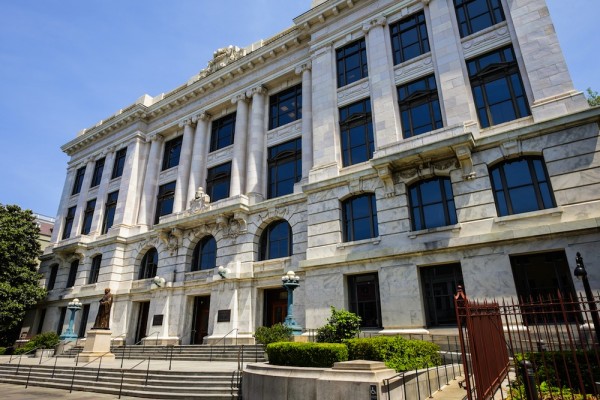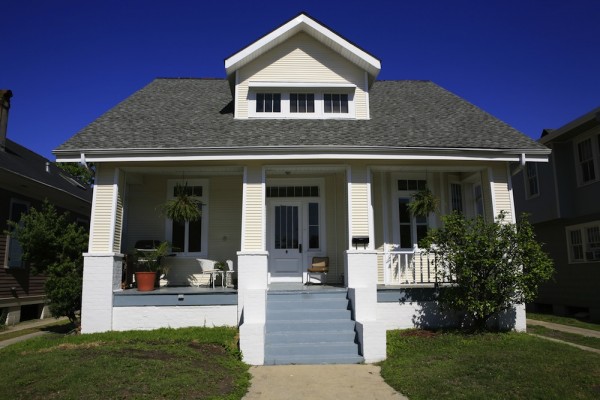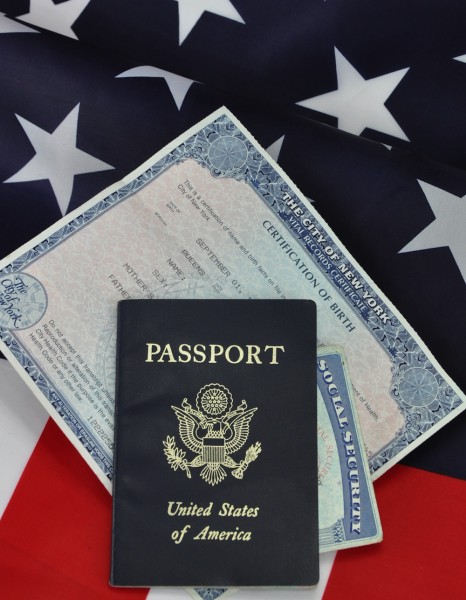Louisiana Adoption Guide
Welcome, Louisianians! This guide was written to provide you with a single spot to find information about adoption within Louisiana. It will walk you through everything from laws that will impact your adoption to reviews of adoption service providers in Louisiana.
This guide is divided into five parts: general information about adoption in Michigan, then sections dedicated to domestic infant adoption (starting in Slide 6), foster adoption (starting in slide 19), international adoption (starting in slide 29), and stepparent adoption (starting in slide 33). And don’t miss our slide filled with links to helpful adoption resources (slide 36).
If you’re interested in domestic infant adoption and would like to speak with an adoption professional about your options, click here.

1. Please Note:
Although care has been taken to ensure the accuracy, completeness, and reliability of the information provided in this slideshow guide, you should not rely on it to make decisions.
Instead, you should rely on licensed professionals in making decisions relative to adoption.
The information in this guide is subject to change without notice. Adoption.com is not responsible for the consequences of relying on this information.
In no event shall Adoption.com be liable for any direct, indirect, special, or incidental damage resulting from, arising out of, or in connection with the use of this information.

2. Did You Know?
In the 2000 census, there were 22,827 adopted children under the age of 18 living in Louisiana.
Louisiana boasts some of the nations best bayous. Bayou in French means slow moving river.

3. Adoption in Louisiana at a Glance
Kids in foster care available for adoption in 2014: 653
Foster adoptions completed in 2013: 733
International adoptions completed in 2013: 41
Other adoptions completed in 2008: 781

4. Can I Adopt in Louisiana?
Adoption requirements in the state of Louisiana are as follows:
Age: 21 for foster care adoption. 18 for private adoption.
Marital Status: Single, married, divorced, or widowed. If divorced, the couple must be legally divorced, not simply separated. Cohabiting, but not legally married, couples are not eligible to adopt from foster care. Louisiana law does not discuss second parent adoptions by same-sex partners. Therefore, there is no way to legally enforce LGTB adoption.
Finances: Must have “sufficient income to meet their own basic needs.”
Housing: Can own or rent. The housing must be a safe and sanitary environment with adequate room for entire family. For foster adopt, the home cannot be used as a boarding house, day care center, or other similar business.
Personality: Must be stable, not about to move, with no financial, marital, or emotional difficulties.
Experience: For foster adoption, must complete 21 hours of Model Approach to Partnership in Parenting (MAPP) training.
Other Requirements for foster adoption:
• Must have adequate, reliable transportation.
• Must be free of communicable disease.
• Must not use physical punishment.
Louisiana offers MAPP classes to help inform and prepare prospective adoptive parents for the job of watching over children. Adoptive parents can expect to spend three hours a week over a nine week period training to become licensed foster care providers.
DISQUALIFYING CRIMES: In this state, you may not adopt if you have substantiated incidences of abuse or neglect.
You must pass state and federal criminal background checks.
You may not adopt if you have been convicted of any of the following:
• First- or second-degree murder
• Manslaughter
• Kidnapping
• Criminal neglect of family
• Criminal abandonment
• Felony carnal knowledge of a juvenile, indecent behavior with juveniles, prostitution, soliciting for prostitutes, pandering, letting premises for prostitution, enticing persons into prostitution
• Contributing to the delinquency of juveniles, cruelty to juveniles
• Child desertion
• Cruelty to the infirm

5. Developing a Support System
It’s essential to have a good network of family, friends, and neighbors to support you through your adoption process.
It’s also important to connect with other adoptive parents. You can begin making these connections in our general forums.
You may also want to consider joining a support group for adoptive parents. Louisiana has many such groups, including the following:
Louisiana Adoption Advisory Board, Inc.
Louisiana Adoption Support Alliance
Louisiana Foster and Adoptive Parent Association
Pride and Hope Ministry Adoptive Parent Support
St. Elizabeth Foundation
Volunteers of America Greater New Orleans, Inc.
Louisiana Adoptive Families Facebook Group
Louisiana Adoptee Rights Campaign

6. Domestic Infant Adoption in Louisiana
Before you get started, click here to learn more about the overall process of adopting an infant in the United States. Then, because laws and processes vary from state to state, come back to get the details about adoption in Louisiana.

7. Domestic Infant Adoption: Get Professional Help
In Louisiana, you can use a licensed child-placing agency or an attorney to complete an adoption.
Some people pursuing a private adoption find it beneficial to work with a professional adoption facilitator, an individual or organization that matches birth parents with adoptive parents in exchange for a fee.
However, Louisiana limits the compensation that facilitators can receive.
The law (Rev. Stat. § 14:286(B)-(C)] states: “The payment or receipt of anything of value for the procurement or assistance in the procurement of a party to an act of voluntary surrender of a child for adoption is prohibited. No petitioner, agency, attorney, or other intermediary shall make any payment in connection with an adoptive placement other than for reasonable medical, administrative, living, or other expenses.”
You can browse and read reviews about adoption service providers in Louisiana here.
For more information about picking an adoption agency, learn about the Top Fifteen Things to Look for In An Adoption Agency.

9. Domestic Infant Adoption: Complete a Home Study
Regardless of which type of adoption you choose, you will need to complete an adoption home study.
Your home study social worker will help educate you about adoption and ensure that you (and your partner, if applicable) meet the requirements outlined on Slide Four.
The home study must include the prospective adoptive parents and all members of their household. At least two home visits must be completed prior to placement. The home study must be complete and current at the time of placement.
After placement, three post-placement visits are required, up to at least six months after placement.
Here are a few of the areas covered during a home study according to Admin Code § 48:I.4115:
-Motivation for adoption
-Background information of all the members of the household including:
• Personality and appearance
• Family background, customs, and relationships
• Education and employment histories
• Children in the family and family interaction patterns
• Past and present physical and mental health
• Hobbies, interests, social contacts, contacts with extended family, and involvement in the community
Click here to learn more about the Home Study process.

10. Domestic Infant Adoption: Spread the Word
In Louisiana, advertising for an adoptive placement is unlawful. Only licensed child-placing agencies and Louisiana-based crisis pregnancy centers may advertise.
One of the most important things you can do while waiting for an adoption match is to let everyone know about your hope to adopt. Many adoption connections are made through word-of-mouth referrals.

11. Domestic Infant Adoption: Relinquishment
Consent must be signed by both biological parents. A minor parent needs parental consent or the consent of the court to sign the termination of parental rights.
Before signing consent, the biological parents must have a minimum of two counseling sessions with a licensed social worker, psychologist, psychiatrist, or counselor. The biological father can waive this requirement, but the biological mother cannot.
A legal father can sign consent any time before or after the child is born, but the consent is not irrevocable until five days after the child is born. An alleged or adjudicated father can sign consent any time before or after the child is born, and the consent is irrevocable upon execution.
The earliest that a biological mother can sign consent in an agency adoption is three days after birth, or, in an independent adoption, five days after birth.
Remember, this time is a minimum; the mother can take as much time as she needs or wants to sign consent.
Consent is irrevocable upon execution and acceptance by the court.

12. Domestic Infant Adoption: Birth Father Rights
If a pregnant woman is married, her husband is the legal father of the child, even if he is not the child’s biological father. He must sign a surrender or have his rights terminated by the court.
If a pregnant woman is unmarried, a man can establish paternity by registering with the Putative Father Registry, by taking a DNA test, or by a legal act of acknowledgement. A man must register or make a claim before the termination of parental rights hearing.
The Louisiana Vital Records Registry maintains the Louisiana Putative Father Registry. Click here for more information.
If the biological father does not agree with the adoption plan, to successfully oppose the adoption, he would have to acknowledge his status as the child’s father, show a willingness to accept responsibility for or custody of the child, and prove his fitness as a father to the court.
The biological mother must notify the biological father about the adoption plan. If his whereabouts are unknown, the agency or attorney must exercise due diligence to find him.
If the biological father is unknown, then the biological mother must declare this fact in her surrender. The birth certificate cannot contain a name for the father.
The agency must check the putative father registry, and obtain a certificate from the clerk of court in the parish in which the child was born that indicates that no acknowledgement of paternity for the child has been filed.
The court then terminates the parental rights of all unknown fathers. This usually occurs within 30 days of the biological mother signing surrender.
SOURCE: //www.avvo.com/legal-guides/ugc/frequently-asked-questions-about-adoption-in-louisiana-biological-parent-related

13. Domestic Infant Adoption: Laws about Birth Parent Expenses
Hopeful adoptive parents and/or an adoption agency may provide legal and living expenses for an expectant mother. There are, however, requirements governing such support.
Louisiana does not have a cap on birthmother expenses. Instead, the state provides a reasonable standard, meaning that the money given to the birth mother makes sense for her required expenses. Expenses may be paid for “a reasonable amount of time before” the birth of the child, and up to 45 days after the birth of the child. Acceptable fees include medical, mental health (counseling), and legal expenses, as well as living expenses.
A detailed account of all expenses must be provided for the court. If the court finds the expenses unreasonable, it may order a reduction of the expenses, with a refund to be given by the person who received the fees.

14. Domestic Infant Adoption: Post-Adoption Contact Agreements
Louisiana does allow voluntary post-adoption contact agreements, also known as open adoption agreements. There is no distinction between agreements for children adopted privately and children adopted through foster care.
To be enforceable, a post-adoption contact agreement must be in writing and must be filed with the court.
An agreement can include the child’s parents, grandparents, or siblings, or any relative who has a significant relationship with the child.
Failure to comply with a post-adoption contact agreement does not nullify the adoption.

15. Domestic Infant Adoption: Finalization
Louisiana allows parents adopting privately to finalize in Louisiana or in the adoptive parents’ home state. If you choose to finalize in Louisiana, you must travel to Louisiana and appear in court. For agency placements, the time frame between placement and finalization is a minimum of six months. For independent placements, the time frame between placement and finalization is a minimum of 12 months.

16. Domestic Infant Adoption: Adopting in Louisiana from Out of State
With private (usually domestic infant) adoptions, it is always possible to adopt a child within Louisiana, even if you live in a different state.
The Interstate Compact for the Placement of Children (ICPC) was adopted in the 1960s to provide for oversight and protection of children placed for foster care or adoption between states.
If you are adopting a child from another state, you will need to receive permission from the ICPC office in the state where the child is from. Your agency or attorney will send the office copies of your home study and some other paperwork. They will need to approve your packet before you can bring your child home.
Read more about the ICPC here.
For private adoption placements, the wait for ICPC is officially about 1 to 30 days. Parents who have adopted recently have reported waits of about about four to seven days.
For more information about ICPC in Louisiana, click here.

17. Domestic Infant Adoption: Traveling to Louisiana from Out of State
In Louisiana, the earliest a new mother can sign the termination of parental rights is three days after the baby is born in an agency adoption, five days after the baby is born in an independent adoption.
After TPR has been signed, ICPC can start. Families who have adopted recently have reported that ICPC has taken about four to seven days. Based on this information, adoptive families are looking at a minimum stay of seven days. Recent families have stayed for about 7 to 21 days, with extra days due to arriving before the birth or having to comply with the Indian Child Welfare Act (ICWA).
Hotel costs vary based on the city in which you stay and when you stay there. As of this writing, the average cost of a hotel room in New Orleans, LA is $179 per night, with hotels in Baton Rouge being somewhat less expensive. College football is very big in Baton Rouge, so rooms may more expensive in the fall. In New Orleans, Mardi Gras inflates the rates come early spring.
Families who have adopted recently report rates of about $525 for a 7-day stay and up to $3,000 for a 21-day stay. Instead of using the hotel’s web site, call the hotel directly and explain that you are prospective adoptive parents. The hotel staff will often be able to give you a better rate, or even upgrade your room at no extra cost.
New Orleans is a vibrant city full of history and culture. Just a walk down the street can be an adventure (but don’t try this alone at night – New Orleans had the second highest murder rate in the nation in 2014). Stroll the historic French Quarter and listen to some jazz.
The America’s Wetland Birding Trail winds through 22 Louisiana parishes (what the rest of the country calls counties), with 115 bird watching sites.
In southwest Louisiana, the Cajun Riviera stretches from Holly Beach to Cypremort Beach. You can swim in the Gulf of Mexico.
Louisiana boasts several interesting museums. Every year, the Louisiana Children’s Museum hosts the Children’s World Fair, a celebration of cultural diversity in the science, technology, engineering, and math fields. The Sci-Port Louisiana Science Center is a hands-on museum for all ages to learn about math, science, and space.
Learn more about the state’s history at the Louisiana State Exhibit Museum. Travel through time by visiting the Spring Street Historical Museum.
For many people, a trip to Louisiana wouldn’t be complete without getting to hold a gator. Gators and Friends Alligator Park and Exotic Zoo, Bayou Pierre Alligator Park, Insta-Gator Ranch and Hatchery, and Honey Island all offer opportunities to have your picture taken up close and personal with these apparently very tasty beasts.
Check out the following sites to find more family-friendly fun in the Pelican State:
//www.louisianatravel.com/attractions/family-fun
//www.familydaysout.com/kids-things-to-do-usa/louisiana/
//blog.trekaroo.com/top-10-things-for-families-to-do-in-louisiana/

18. Foster Adoption in Louisiana
Before you get started, click here to familiarize yourself with the overall process of adopting children through foster care
Then, because laws and processes vary from state to state, come back here to get the details about foster adoption in Louisiana.

19. Foster Adoption: Children Available for Foster Adoption in Louisiana
According to the Louisiana Department of Children and Family Services (DCFS), there is a great need for parents for children ages 11 through 16, sibling groups, and teenage mothers.
You can find some of Louisiana’s waiting children on the Adoption.com Photolisting site by clicking here.

20. Foster Adoption: Get Professional Help
You can complete a foster adoption either through a private agency that is licensed to provide foster care and adoption services or directly through Louisiana DCFS.
You cannot use both DCFS and another agency for foster adoption at the same time. You cannot adopt children from another agency prior to finalizing an adoption from foster care.
To find adoption agencies in Louisiana and to read reviews, check out Adoption.com’s Reviews page for Louisiana.
You will still need to complete a home study as part of this process. The home study includes interviews, home visits, a safety and fire inspection, and paperwork. There are a number of housing requirements, including:
• Children over the age of six of opposite genders may not share a bedroom.
• Each foster child must have his or her own bed.
• No more than three children may share a room. There must be 75 square feet for the first child, then 55 square feet for each additional child.
• Children over the age of six months cannot share a room with an adult.
The DCFS web site provides ample information about becoming a foster or foster-adoptive parent.

21. Becoming Part of the Foster Care System
Prospective adoptive parents can specify that they only wish to foster or that they only wish to adopt, but they must be certified for both foster care and adoption. This is called dual certification.
The process takes about three months, not including the Model Approach to Partnership in Parenting (MAPP) training. Certification usually happens within six months. The process involves the following steps:
1. Orientation
2. Application
3. Fingerprinting
4. Pre-service training, seven 3-hour sessions
5. Home study, including interviews, home visits, a safety and fire inspection, and paperwork
6. Placement
Relatives must meet the same eligibility requirements as non-relatives. However, the pre-service training requirement may vary.
Prospective foster and adoptive parents must be fingerprinted. As of this writing, the wait time for fingerprints is 48 to 72 hours.
Foster parents are eligible to be certified as adoptive parents if they have completed the MAPP training and meet the following requirements:
• The home is certified. (The home passes inspection.)
• The adults in the home do not have any validated incidences of abuse or neglect.
• The child is legally available for adoption and no relative or other person known to the child is determined to be an appropriate placement.
• The child has been placed in the home for at least one year.
• The foster parent wishes to adopt the child.
• The child desires to be adopted.
Foster parents have the right to attend court hearding and to be heard regarding the children in their home.
Foster parents must be recertified after six months, and then again annually. Recertification includes 15 hours of training, which can be shared between both parents. The web sites fosterclub.com and fosterparents.com contain acceptable training.
Foster parents must provide transportation to medical appointments, visits with biological family members, school, and so on.
Louisiana does not have legal risk licensure for foster-adoptive parents.

22. Post-Adoption Contact Agreements
A post-adoption contact agreement is a voluntary agreement that can be entered into by adoptive and birth families. The agreement outlines details about how much contact the birth and adoptive families will have after the adoption is finalized.
In instances in which the child’s biological parents’ rights have been involuntarily terminated, the well-being of the child needs to be first and foremost in everyone’s minds if a post-adoption contact agreement is created. Caseworkers and therapists should be consulted in making decisions about contact after adoption.
Louisiana does allow voluntary post-adoption contact agreements, also known as open adoption agreements. There is no distinction between agreements for children adopted privately and children adopted through foster care.
To be enforceable, a post-adoption contact agreement must be in writing and must be filed with the court.
An agreement can include the child’s parents, grandparents, or siblings, or any relative who has a significant relationship with the child.
Failure to comply with a post-adoption contact agreement does not nullify the adoption.

23. Finalization
Children must be placed in a foster parent’s home for at least six months before the foster parent can apply for adoption.
The prospective adoptive parents must have an attorney, and the child must also have an attorney. If the prospective adoptive parents live in one parish (county), and the foster children are in care in another parish, the adoption can be finalized in either parish.

24. Adoption Assistance
Adoption subsidies are available for special needs children. A child may be determined to have special needs if he or she meets one or more of the following criteria:
• Is over five years old.
• Is of “an ethnicity that creates a barrier to adoption.”
• Is a member of a sibling group who should not be separated.
• Has a physical, mental, or an emotional disability.
• Has a severe chronic medical condition.
• Has a severe chronic mental health condition.
• Has genetic or other risk factors for a severe or chronic medical or mental health condition.
Medicaid is available to children adopted from foster care until they are 19 years old.
For more information, see //www.nacac.org/adoptionsubsidy/stateprofiles/louisiana.html.

25. Foster Adoption: Adopting in Louisiana from Out of State
To adopt from foster care in Louisiana, you must be certified to adopt in accordance with the laws of your state.
You can go to your local child welfare agency, a private agency that contracts with the state, or use the Louisiana Adoption Resource Exchange (LARE) program. The LARE program identifies and publicizes available children.
The Interstate Compact for the Placement of Children (ICPC) was adopted in the 1960s to provide for oversight and protection of children placed for foster care or adoption between states.
If you are adopting a child from another state, you will need to receive permission from the ICPC office in the state where the child is from. Your agency or attorney will send the office copies of your home study and some other paperwork. They will need to approve your packet before you can bring your child home.
Read more about the ICPC here.
The wait time for ICPC for all adoptions from foster care is officially six to nine months, including for relative adoption from foster care.
For more information about ICPC in Louisiana, click here.

26. Foster Adoption: Traveling to Louisiana from Out of State
Hotel costs vary based on the city in which you stay and when you stay there. As of this writing, the average cost of a hotel room in New Orleans, LA is $179 per night, with hotels in Baton Rouge being somewhat less expensive.
College football is very big in Baton Rouge, so rooms may be expensive in the fall. In New Orleans, Mardi Gras inflates the rates come early spring.
Louisiana has plenty of attractions to visit during your stay. Catch a Broadway-caliber show at Saenger Theatre in New Orleans, Strand Theatre in Shreveport, the Heymann Performing Arts Center in Lafayette, or the Baton Rouge River Center.
Louisiana is still home to many plantations, some of which have been restored to their antebellum beauty. Historical tours, sometimes by costumed guides, are available.
The San Francisco Plantation, Destrehan Plantation, Gramercy, and Houmas House are but four of such plantations. The Whitney Plantation offers tours from a unique standpoint – that of the African slaves forced to work there.
The Global Wildlife Center features giraffes, zebras, camels, and other wild animals on their 1-1/2 hour long Safari Tours. Because, you know, there’s more to Louisiana than just gators.
Check out the following sites to find more family-friendly fun in the Pelican State:
//www.louisianatravel.com/attractions/family-fun
//www.familydaysout.com/kids-things-to-do-usa/louisiana/
//blog.trekaroo.com/top-10-things-for-families-to-do-in-louisiana/

27. International Adoption in Louisiana
Before you get started, click here to familiarize yourself with the overall process of international adoption. Then, because laws and processes vary from state to state, come back here to get the details about international adoption in Louisiana.

28. International Adoption: Photolisiting
There are millions of beautiful children across the world who are hoping to find a forever family.
Click here to meet some of them through our Photolisting.

29. International Adoption – Get Professional Help
With international adoptions, your only choice is to complete your adoption through an agency.
Because of the Universal Accreditation Act, all adoption agencies completing international adoptions are required to be credentialed according to federal standards. Make sure to check with any agency before working with them to ensure they have this accreditation in place!
In selecting an international adoption agency, there are Four Essential Criteria you should probably consider.
Click here to browse through reviews of adoption agencies in Illinois.
In order to be approved to adopt internationally, you will need to complete an international adoption-specific home study.

30. International Adoption: Post-Adoption Requirements
Louisiana requires adoptive parents to petition the court for validation or to file or register the foreign adoption or foreign adoption decree. Adoptive parents must petition the court for recognition of a foreign adoption. You can readopt in the state.
You will also need to request a U.S. birth certificate for your child. To request a Louisiana state birth certificate for an adopted child, adoptive parents must submit documentation from readoption or validation of a foreign adoption in a State court.
Depending on what the adoptive parents request, the State Registrar issues the birth certificate in the new name of the adopted child, and the certificate shows the date and place of birth. However, a notation is made on the birth certificate that it is not evidence of U.S. citizenship for the child.
Read more about post-adoption requirements here.

31. Stepparent Adoption in Louisiana
Before you get started, click here to familiarize yourself with the overall process of stepparent adoption. Then, because laws and processes vary from state to state, come back here to get the details about stepparent adoption in Louisiana.

32. Stepparent Adoption: Terminating Parental Rights
For you to adopt the child of your spouse, the corresponding biological parent’s rights will first need to be terminated, either voluntarily or involuntarily.
You will need to consult with an adoption attorney about your desire to adopt. He/she can help you decide if it’s likely that the biological parent would be willing to relinquish rights OR if it would be feasible to pursue involuntary termination of his/her parental rights.
If your stepchild is 12 or older, he or she must also consent to the adoption.

33. Stepparent Adoption: Petitioning to Adopt
Once parental rights have been terminated, you can file a petition to adopt with the court.
You and your spouse will both testify in court regarding the stability of your marital relationship, the bond you’ve developed with your stepchild, and your desire to become the legal parent of your stepchild.
Louisiana does require a home study to complete a stepparent adoption. However, there the post-placement supervision may be waived by the court. The Department of Child and Family Services (DCFS) offers adoption petition services for stepparent adoptions. For more information, click here.

34. Adoption Resources
Link to Adoption Forums
Link to Wiki Laws for Illinois
Link to Adoption Stories

35. Works Cited
• 2006 Louisiana Laws – RS 15:587.1 — Provision of information to protect children: //law.justia.com/codes/louisiana/2006/145/79264.html
• Child Welfare Information Gateway: https://www.childwelfare.gov/topics/systemwide/laws-policies/state/?CWIGFunctionsaction=statestatutes:main.getResults
• Child Welfare Information Gateway: https://www.childwelfare.gov/pubPDFs/homestudyreqs_adoption.pdf
• Frequently Asked Questions About Adoption in Louisiana, Biological Parent-Related: //www.avvo.com/legal-guides/ugc/frequently-asked-questions-about-adoption-in-louisiana-biological-parent-related
• ICPC State Pages, Louisiana: //icpcstatepages.org/louisiana/
• Louisiana Department of Children and Family Services: //www.dcfs.louisiana.gov/index.cfm
• Louisiana Department of Children and Family Services: //www.dcfs.louisiana.gov/#2
• Louisiana State Subsidy Profile, //www.nacac.org/adoptionsubsidy/stateprofiles/louisiana.html
• State Registrar and Vital Records, Adoption Information: //dhh.louisiana.gov/index.cfm/page/680
• Top 10 Things for Families to do in Louisiana, //blog.trekaroo.com/top-10-things-for-families-to-do-in-louisiana/
• Use of Advertising and Facilitators in Adoptive Placements: https://www.childwelfare.gov/topics/systemwide/laws-policies/statutes/advertising/
• Special thanks to several moms through adoption who are members of the Creating a Family Facebook group







